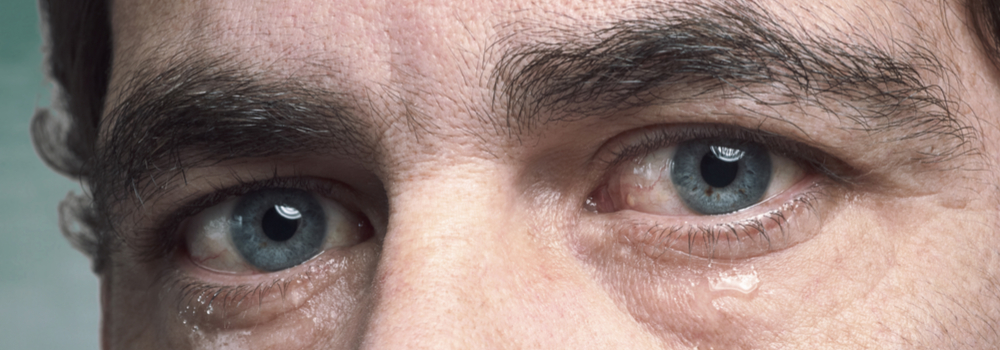On the day that the Grinch’s heart grew two sizes, he cried. In the movie version starring Jim Carrey of the beloved Christmas tale, the Grinch lays in the snow, overcome by emotions, and cries. “MAX!” he exclaims to his canine counterpart, “HELP ME. I’m feeling. I’m all toasty inside.” As a teardrop falls from his eyes he wipes it up with his signature Grinch finger, says with curiosity, “And I’m leaking.”
Crying is a peculiar ability. Without any context of the emotional association which comes with crying it would seem that humans have a bizarre tendency toward suddenly leaking water from their eyes, even after significant protest. Emotionally, crying has no favorites. Humans cry when they feel sad, when they feel happy, when they feel good, when they feel pain- humans cry when they feel because humans feel. Humans express their feelings through crying.
Everyone has a crying threshold, Scientific American reports in “Why Do We Cry?”- the point of no return when it comes to holding back emotions. Like a pot boiling over or a volcano waiting to explode, the pressure can only be contained to such a degree. For some the threshold is high and they seemingly never cry. Others have a very low threshold and cry quite easily. What creates the emotional pressure pushing the emotional threshold is “emotional reactivity”, the article explains, or “…the intensity with which an individual reacts to a situation”. “…Whether someone cries depends on how readily he or she responds to a situation,” the article elaborates, “not necessarily the person’s baseline emotional state.”
Men have a complicated relationship with crying and feeling their feelings as well, especially when they are living in active addiction to drugs and alcohol. Drugs and alcohol are desensitizing, producing a numbing effect. The many ways that addiction alters normal brain chemistry and functioning includes changes in emotional reactivity as well as how emotions are expressed. Men may turn to drugs and alcohol to help them feel when they cannot feel anything, or to suppress their feelings when they feel too much
From a young age, males receive conflicting messages about their emotional lives. Men are encouraged to be tough and strong. Unfortunately, being tough and strong is inherently contradictory to having feelings and being emotionally vulnerable. Emotional vulnerability for males is no more exemplified than it is through crying. Thus, when men cry, it is seen as weak- the opposite of what men are being told to be. As a result, men become severely disconnected from their important emotional selves, denying and aggressively suppressing an intimate part of their holistic existence.
Recovery from drug and alcohol addiction through a treatment program helps men, among many other ways, cry. Crying is believed by many psychologists to be a social signal of distress as well as a release of emotions, according to Big Think. “Care-taking at times of great stress can increase the bonds between individuals in a group, making them more in tune with one another, better able to communicate and understand each other, increasing teamwork among them and so their likelihood of survival.”
Men who become addicted enter a chronic state of survival. Quite literally, drugs and alcohol change the part of the brain where the orders of operation for survival live- the midbrain. Increasingly, addiction, that is the craving, seeking, obtaining, and using of mind-altering substances, becomes the most important part of survival. Isolating, suppressing emotions, and living for the next high is what perpetuates the cycle of addiction. In order to survive recovery, men need other men. Men need to create that bond among individuals in a group of men, emotional expression included. Asking for help and gaining the emotional support of others is critical for survival in recovery, at all stages. Men in treatment learn how to communicate with others, vulnerably express their emotions in front of others, understand themselves and others, as well as work as a team. These valuable lessons and skills encourage the personal growth necessary which create a higher likelihood of sustained recovery outside of treatment.
By creating sustainable change, the addiction treatment programs at Tree House Recovery help men find freedom from addiction, creating sustainable recovery. Using the nature of the Pacific Northwest as inspiration, our program focuses on building men in mind, body, and spirit. For information on our programs, call us today: (503) 850-2474




